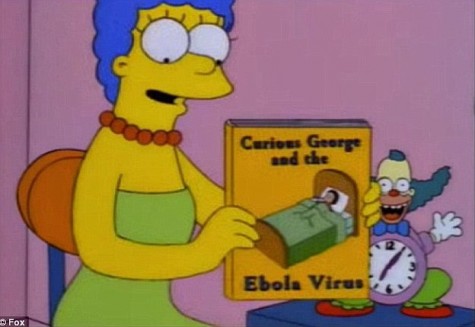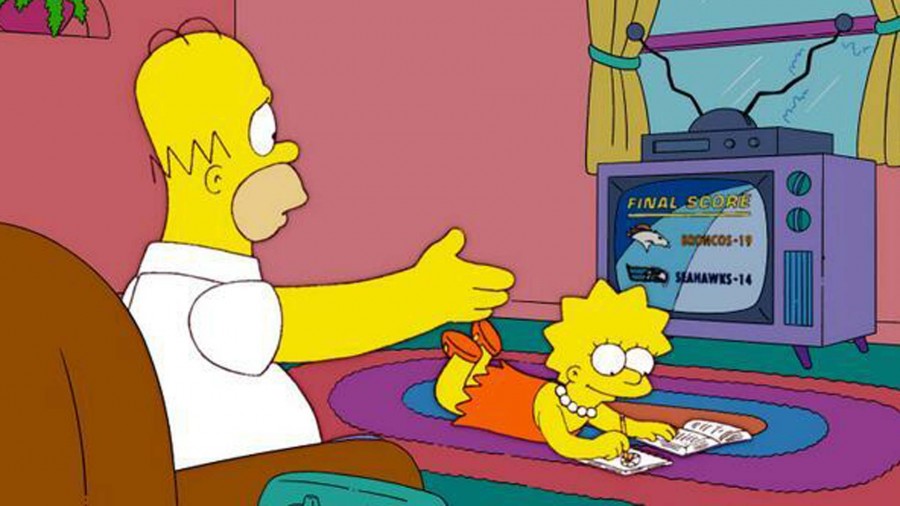Can the Simpsons predict the future?
March 24, 2016
Since 1989, this comedy sitcom including the famous, yellow, dysfunctional family has been entertaining the public with more than 635 episodes. Yet recently fans have been reflecting on past Simpsons episodes and been noticing some strange comedic predictions that turned out to be true.
In season nine, The Simpsons aired an episode entitled “Lisa’s Sax” which featured the story of how the most intelligent Simpson Lisa obtained her first instrument of a saxophone after her current one is ran over by Homer.
Meanwhile Bart’s first day of school is shown as it added onto the story of how Lisa gets her first saxophone. After his first day of school, Bart is told he would be a failure at life by a teacher and gets extremely offended by this comment thus moving to his mother Marge for comfort. Marge then attempts to read a book to Bart called Curious George and the Ebola Virus, a book that features a sick monkey in a bed looking as he is in pain.
In 2014, the Ebola virus made global news as it was a deadly sickness that involves organ failure and bleeding often resulting in death by those who have it. Although the Ebola buzz seemed to die down in recent years, there is no cure or vaccine for the virus, making it very harmful and deadly.
Since the Simpsons mentioned this virus in 1997 before it broke out it had led many questions to not only its writers but the show itself.
Can The Simpsons predict the future, or is there other logical explanations?
The answer to the coincidence may lie in predictive programming. Alan Watt, a writer and philosopher describes predictive programming as “the power of suggestion using the media of fiction to create a desired outcome”. Was this a coincidence of an accurate prediction or the complex work of predictive programming.
Not only has The Simpsons predicted the virus but also Donald Trump’s presidency, the changing voting machine controversy in 2012, the first IPod design and man y more unexplained coincidences. If it is pure luck or public programming the public may never know.
y more unexplained coincidences. If it is pure luck or public programming the public may never know.
